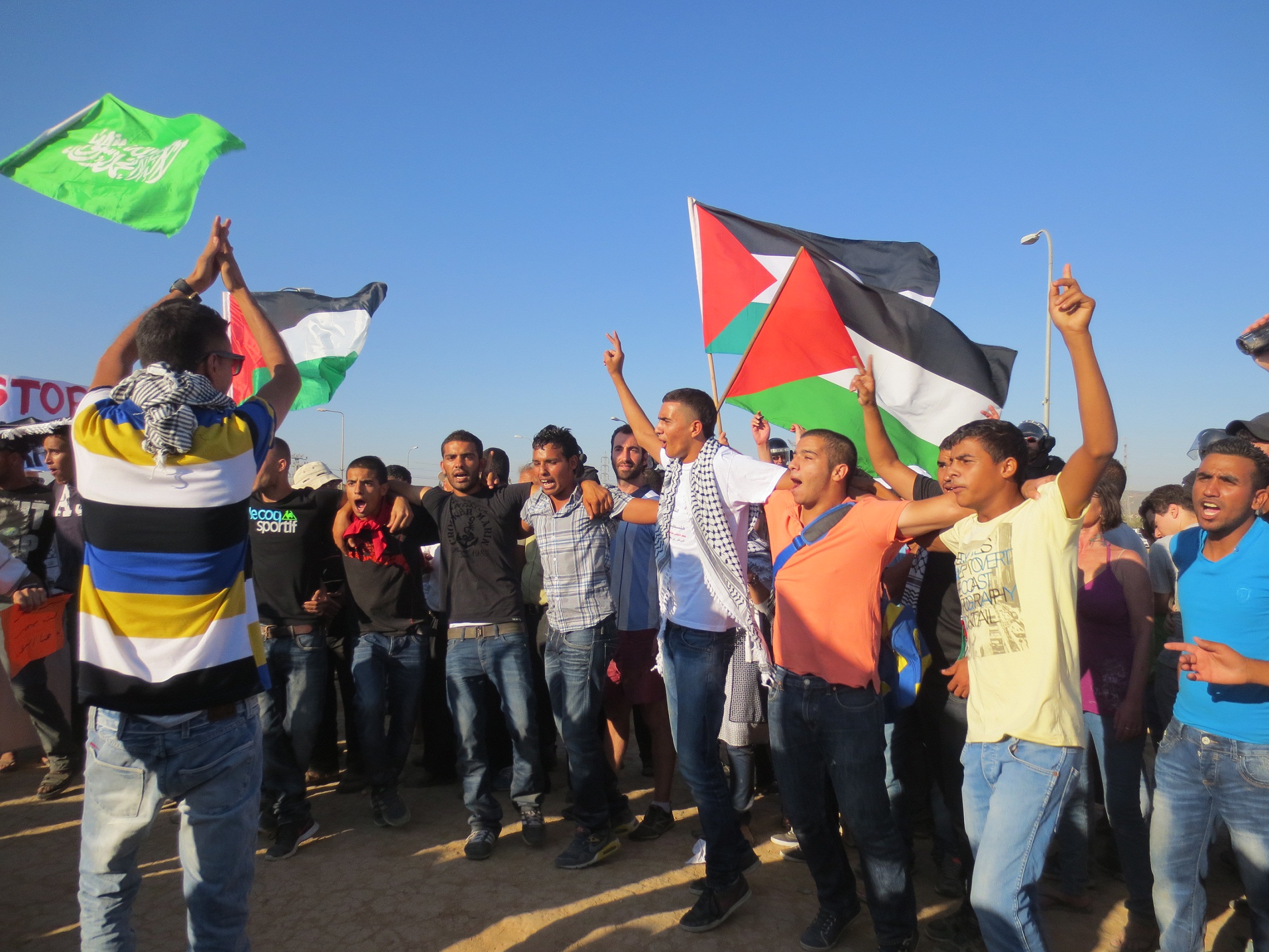Category: Reports
-
Ni’lin continues resisting on the five year anniversary of the killings of Ahmed Mousa and Youssef Amirah killings
2nd August 2013 | International Solidarity Movement, Ramallah Team | Ni’lin, Occupied Palestine Israeli army represses demonstration in Ni’lin as it marks the five year anniversary of the murder of ten-year-old Ahmed Mousa and seventeen-year-old Youssef Amirah. Demonstrators remain defiant after five years of stolen land, illegal settlements and brutal killings of five members of…
-
Settlers attack farmer, kill sheep in Aqraba
2nd August 2013 | International Solidarity Movement, Nablus Team | Aqraba, Occupied Palestine At 530pm on July 30th three settlers from the illegal settlement of Itamar violently attacked a farmer from the village of Aqraba, south east of Nablus. Four farmers from the village had spent the day grazing their more than 500 sheep on…
-
Updated: ‘Day of rage’ against Prawer Plan met with violent repression and over ten arrests
2nd August 2013 | International Solidarity Movement, Ramallah Team | Palestine Update 2nd August: The Palestinian activist arrested at the protest near Hizma checkpoint has been released after paying 3000NIS. All arrestees at the demonstration in Wadi Ara have also been released but will have to be under house arrest for three days. ******* On…

